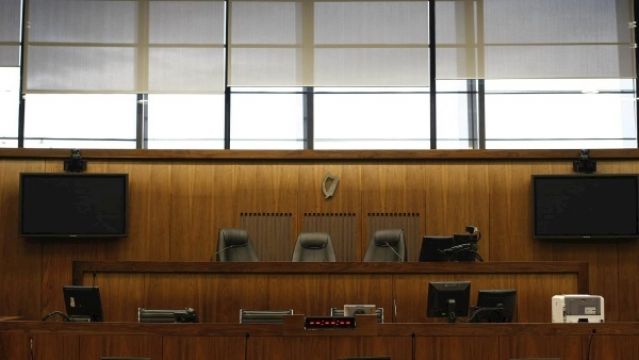The Special Criminal Court trial of Jonathan Hawthorn (47) heard he had taken delivery of fake explosives that were disguised as Play Doh.
Lawyers for Hawthorn, of Ballintyre Downs, Ballinteer, Dublin 16, claimed the headline sentence imposed on him by the Special Criminal Court in October 2018 was excessive and one which was usually reserved for people involved in a leadership role in an illegal organisation.
Hawthorn previously lost an appeal against his conviction, which he had principally challenged over the anonymity granted to six witnesses in the case, including the undercover FBI agent and members of the Garda National Surveillance Unit.
Kerida Naidoo SC, for Hawthorn, said the headline prison sentence of six and a half years imposed by the Special Criminal Court, which was reduced to five years when mitigating factors were taken into account, indicated the court believed his offence was at the upper end of the scale in terms of seriousness.
Mr Naidoo pointed out that the maximum jail term for a conviction of membership of an illegal organisation is eight years.
He told the Court of Appeal that a separate ruling by the Special Criminal Court had set out parameters for sentencing in such cases and had indicated that a prison term of between 64 months (five years and four months) and eight years should be reserved for the most serious cases.
Mr Naidoo accepted that the Special Criminal Court was entitled to infer from the evidence that Hawthorn was a trusted member of an illegal organisation but not that he was in a senior leadership role.
While aggravating factors could be taken into account, Mr Naidoo said the principal factor in terms of sentencing was one’s role in an illegal organisation.
For that reason, he argued the headline figure given to his client should not have exceeded five years and four months.
Mr Naidoo said there were other offences in relation to directing criminal organisations but the DPP had not chosen to charge Hawthorn with any of them.
Opposing the appeal, Paul Greene SC for the DPP, said the nature of one’s conduct while a member of an illegal organisation was also of relevance.
Mr Green said Hawthorn had engaged in deliberate, intentional behaviour and was clearly a trusted member of the IRA by the fact that he was transporting material at the time of his arrest which he believed had the capacity to cause serious harm.
The original trial heard an undercover FBI agent monitoring the dark web was contacted by someone who ordered Semtex, an F-1 Soviet fragmentation grenade, a handgun and 100 rounds of ammunition.
Gardaí, who were alerted to the intended purchase of the weapons and explosives, arranged for a fake DHL delivery of the requested items and arrested Hawthorn at St James Hospital on September 14th, 2016 after he had earlier collected the package at Dolphin House in Rialto.
Hawthorn was found guilty by the three-judge court of membership of an unlawful organisation styling itself the Irish Republican Army, otherwise Oglaigh na hEireann, otherwise the IRA on September 14th, 2016.
The President of the Court of Appeal, Mr Justice George Birmingham, said the sentencing parameters set out by the Special Criminal Court in a different case were non-binding and were “not even a persuasive authority.”
Mr Justice Birmingham said the Special Criminal Court had been entitled to conclude that Hawthorn was “a significant player” because of his role in acquiring what he had believed was explosive material sources over the Dark Net.
He also said another factor beside one’s rank in an illegal organisation was the importance of the task that they were about.
Delivering judgment today, Mr Justice Birmingham, sitting with Ms Justice Una Ni Raifeartaigh and Ms Justice Aileen Donnelly said the appellant was clearly a person of major significance to the unlawful organisation. The offence had to be seen as "very serious offending indeed" and fully justified the headline sentence which fell towards the upper end of the scale. The three-judge court described the sentence as falling well within the normal range and dismissed the appeal.







